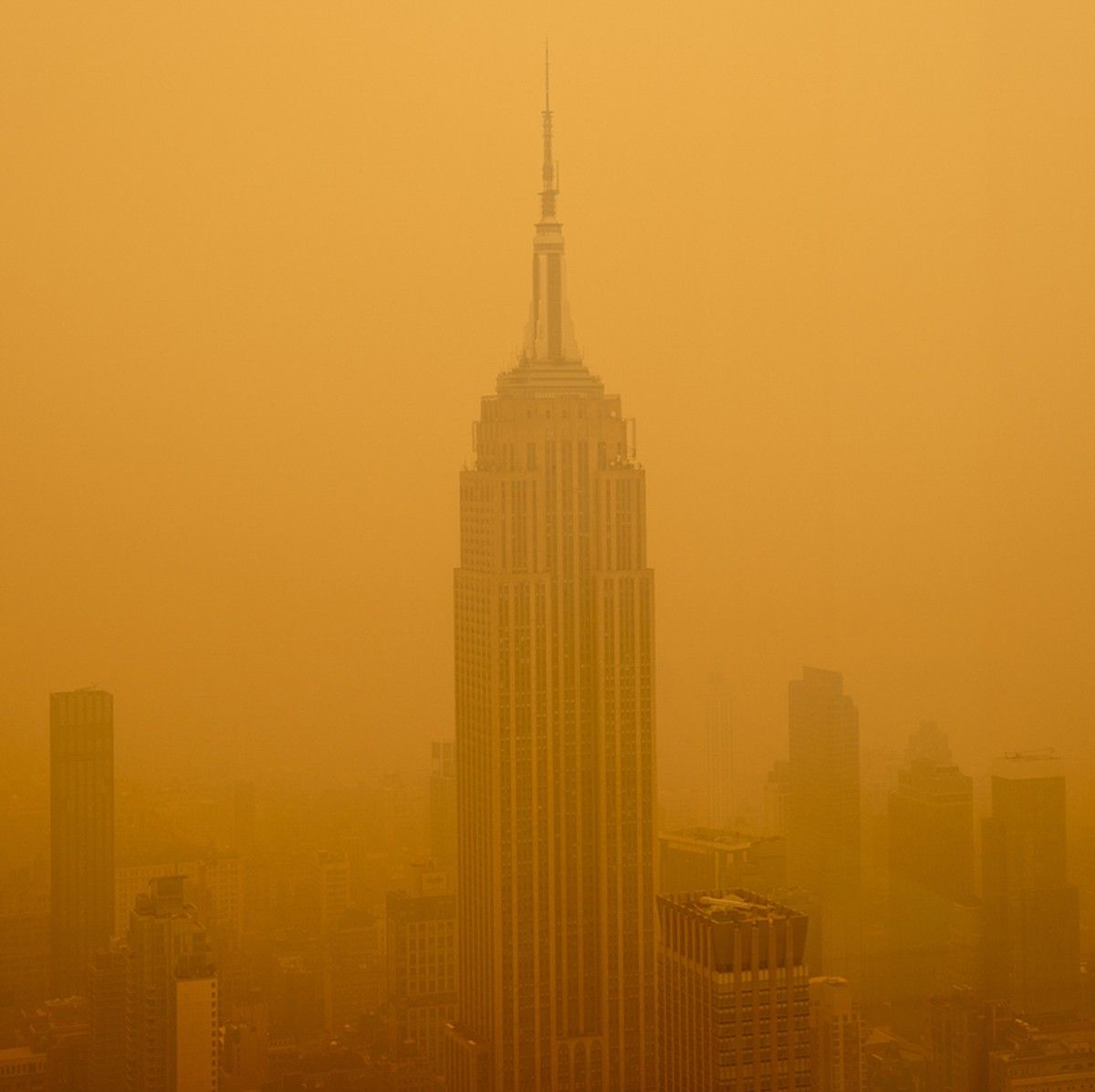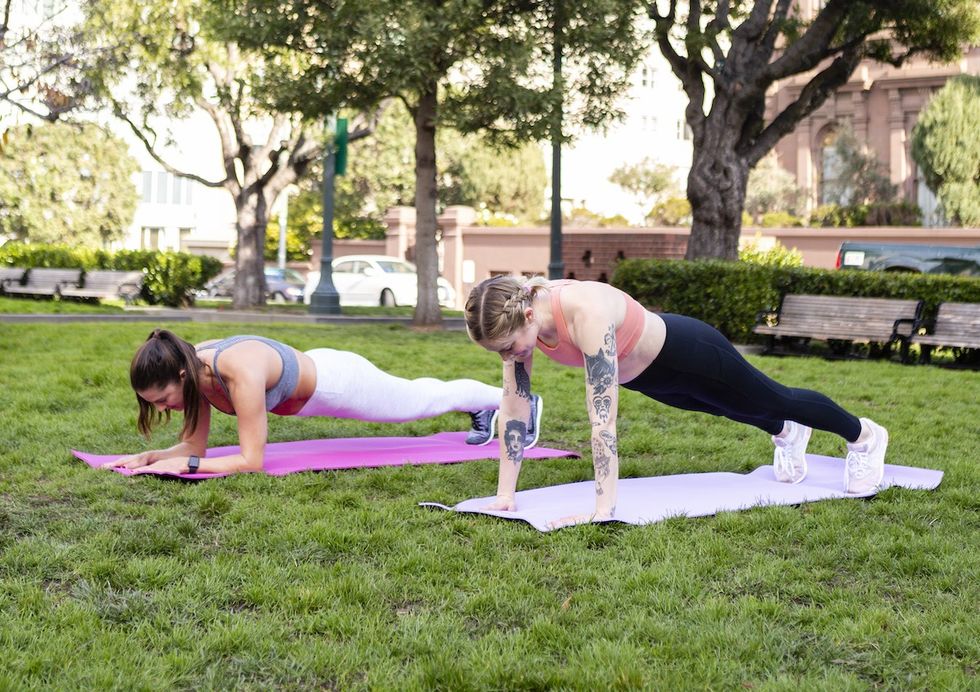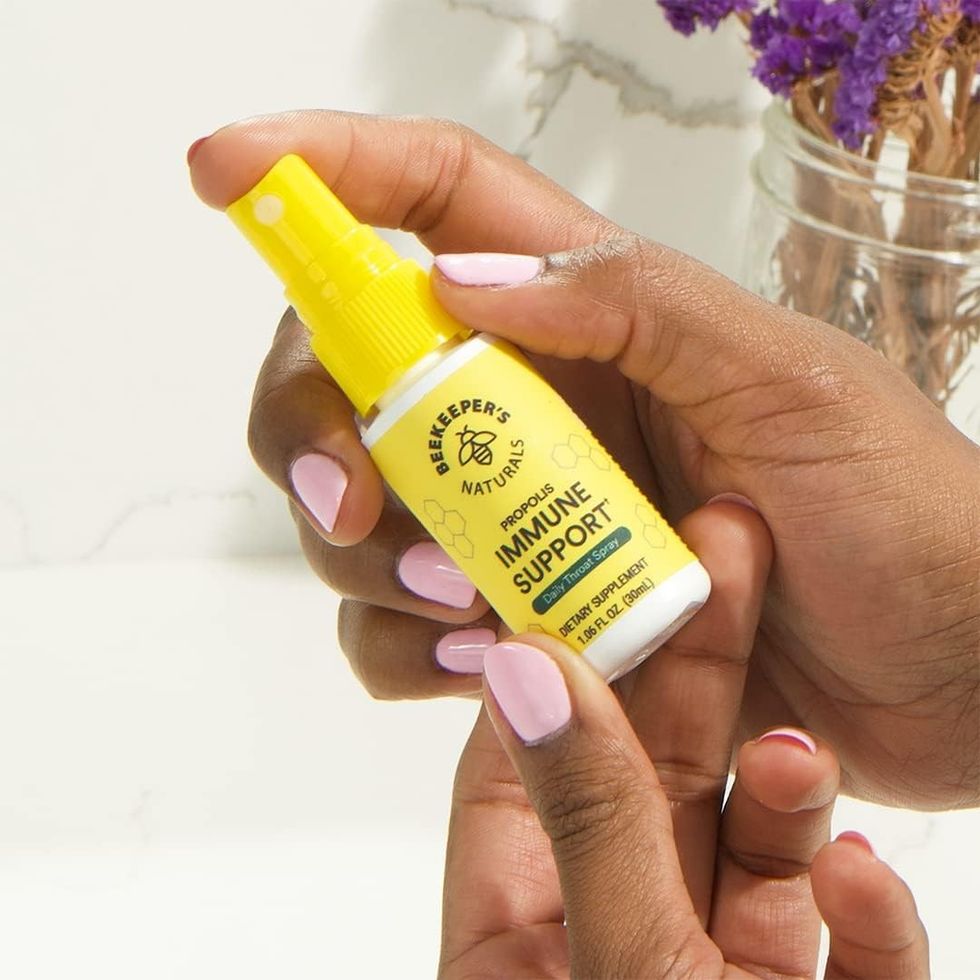Here's how you can recover now, and protect yourself in the future.
How Do You Recover From Poor Air Quality? Here Are Some Expert Tips.

Chloe Williams serves as B+C’s Entertainment Editor and resident Taylor Swift expert. Whether she’s writing a movie review or interviewing the stars of the latest hit show, Chloe loves exploring why stories inspire us. You can see her work published in BuzzFeed, Coastal Review, and North Beach Sun. When she’s not writing, Chloe’s probably watching a Marvel movie with a cherry coke or texting her sister about the latest celebrity news. Say hi at @thechloewilliams on Insta and @popculturechlo on Twitter!
As wildfires in Canada continue to affect parts of the US, many of us are dealing with air pollution we’ve never experienced before. After all, on the east coast, we know how to handle hurricanes, not wildfires! That’s why we spoke to Olivia Amitrano, Certified Clinical Herbalist & Founder of Organic Olivia, for her best wellness advice on recovering from the effects of bad air quality now, and ways you can protect yourself in the future. Plus the health benefits of some foods you probably already have in your kitchen!
“With all the wildfire smoke hitting the northeast this week, it’s important that we take a multipronged approach to protect ourselves,” she says. Because we don’t only want short-term relief — we want to make sure we’re taking care of our bodies in the long run, too.
What does bad air quality do?

Image via B+C
Poor air quality becomes a hazard pretty quickly. It can lead to headaches and sore throats, but it's also bad for your lungs to breathe in too much smoke. Avoid exercising outside until skies are clear again!
Why is the NYC air quality so bad?

Image via David Dee Delgado/Getty Images
Winds began pushing smoke from Canada's forest fires south, and the northeast United States began getting smoky very quickly. Images of New York City specifically, cloaked in an orange haze, quickly went viral on social media and made headlines. It was like walking around in Dune 2 or Blade Runner 2049!
What are the symptoms of poor air quality?

Image via B+C
In addition to headaches and sore throats, poor air quality can affect your lungs and chest. It can also have an impact on your skin and lead to rashes or wrinkles.
How do you recover from poor air quality?

Image via B+C
It's important to drink lots of water and give your body the nutrients it needs. You can also invest in products like air purifiers. Keep reading for more tips and tricks to help keep you healthy!
Preventative Protection

Image via Anna Shvets/Pexels
Anytime you step outside, consider wearing your mask. It's an easy way to protect your lungs, especially if you’ve had problems with respiratory issues in the past. Amitrano suggests trying an N95 or KN95 if you’re part of a compromised population like children, the elderly, or if you have a chronic health condition: “Filtering out as many particles as possible, including the larger ones, is our best bet so that our lungs can focus on handling the tiny ones from the smoke.”
Masks won’t protect you from 100% of the smoke, but according to WorldClinic’s chief medical officer Dr. William Lang (who was also a former director of the White House Medical Unit), an N95 mask filters 95% of particles that are larger than 0.3 microns, via Healthline.

Image via Amazon
If you prefer to stay indoors, or if you've starting having poor air quality in your home, Amitrano recommends investing in an air purifier. It'll help you breathe easier no matter what, so even if your neighborhood isn't being affected by the smoke, purifiers can be incredibly helpful.
Picks like the AIRDOCTOR 3000 filter particles as small as .003 microns (smoke tends to have particles as small as 2.5 microns), and the LEVOIT Core 300 can purify air of a 1,095 ft² space once in one hour. “An air purifier combines a filter (or several) and fan to pull and trap unwanted particles from the air in a room,” she says. “Once the particles are captured, clean purified air is recirculated into the room.”
Air filters have a fairly easy upkeep: just clean the filter once a month and replace them twice a year.
After Care

Air purifiers and masks are helpful preventative care, but what about if you’re already feeling the effects of the smoke? “Throat dryness and discomfort are extremely common when wildfire smoke is near, so using a moistening, soothing herbal throat spray can help protect you and keep you comfortable,” Amitrano says.
Grab something like the Organic Olivia Soothe Your Throat Spray, the Propolis Throat Spray by Beekeeper's Naturals, or opt for a cough drop. However, you can also stock up on foods that will protect and heal your body from the inside out.

Image via B+C
“This is a time to focus on nourishing soups and stews that build up and soothe our mucous membranes,” Amitrano says. She adds that Traditional Chinese Medicine recommends anything ‘pungent,’ like garlic, horseradish, mustard, or ginger.
Honestly, we love these kinds of foods, so we're not complaining. Make this garlic onion hot sauce for your breakfast sandwiches and Bloody Marys, and this Ginger Butternut Squash Soup for workday lunches.

Image via RDNE Stock project/Pexels
“[Garlic] is known to help protect the lungs. A 2013 study [from Medical News Today] found that participants who consumed raw garlic on a regular basis as a part of their diet (two or more times a week), had a 44% decreased risk of developing lung cancer compared to those who consumed it less than two times per week.”
Add chopped garlic to your dinners, mix it into salsa, or just eat a small spoonful. If garlic is a little too pungent for you, apples are also a great option. Our favorite recipe right now? This Apple Pie Chia Pudding.
“Not only are apples extremely moistening, but they also nourish lungs and combat the extremely dry nature of smoke. Applesauce is amazing, too,” Amitrano says. “The flavonoids within apples (especially khellin) can help open up your airways.”
You can also focus on certain nutrients, like the Vitamin C found in your favorite citrus fruits and this Sunshine Juice, but Amitrano also recommends Vitamin D3 and Glutathione.

“Supporting the immune system with Vitamin D is key to help the body’s immune defenses during wildfires,” she says, while she adds that glutathione helps detoxify and protect.
In addition to adding those familiar foods to your meals over the next few days, Astragalus Root and Mullein Leaf Tea can soothe your lungs while helping them recover from smoke inhalation. We hope these tips help you breathe easy!
Check out our email newsletter for more expert tips, and make sure to consult your doctor if you start feeling sick from the smoke, or if you plan on changing your current habits.
Brit + Co may at times use affiliate links to promote products by others, but always offers genuine editorial recommendations.
Lead image via David Dee Delgado/Getty Images



















